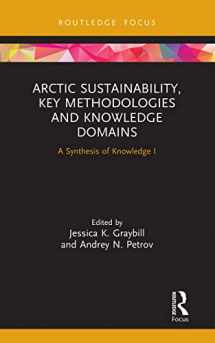
Arctic Sustainability, Key Methodologies and Knowledge Domains: A Synthesis of Knowledge I (Routledge Research in Polar Regions)
Book details
Summary
Description
This book provides a first-ever synthesis of sustainability and sustainable development experiences in the Arctic. It presents state-of-the-art thinking about sustainability for the Arctic from a multi-disciplinary perspective.
This book aims to create a comprehensive, integrative knowledge base for the assessment of Arctic sustainability for countries such as the United States, Canada, Greenland, Iceland, Norway, Sweden, Finland, and Russia, alongside emerging ideas about sustainable development in the Arctic. These ideas relate to understanding how a community’s geography matters in determining the required sustainability efforts, decolonial thinking for building sustainability that is crafted by and for local and Indigenous communities, and the idea of polycentrism (i.e., that the paths toward sustainability differ among places and communities). This volume also highlights the recent thinking about sustainability and resilience over the past decade for the rapidly changing Arctic region.
With patterns of thinking drawn from economic, social, environmental, community, and other components of sustainability; observations and monitoring; engagement of Indigenous knowledge; and integration with policy and decision making, the book helps us understand the complexity and interconnectedness of current Arctic transformations in a more comprehensive way.


We would LOVE it if you could help us and other readers by reviewing the book
Book review



